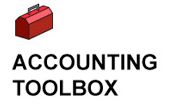Developing an international perspective can draw on four perspectives:
- global business
- working across cultures
- working with different financial markets
- working with accounting practices that differ from U.S. GAAP
1. Global Business
The last three decades have accelerated the move from a United States-centric to a more global-centric business model. A brief review of Fortune magazine's Global 500 shows that the United States has slightly more than 25 percent of the top 500 companies worldwide. Also, most—if not all—of the non-United States-based companies have American components. The key to understanding global business is not only knowing how accounting functions across the world, but how business and the underlying cultures function.
Gaining a global perspective requires a background in international business issues.
The Financial Times is an excellent source of international business news from a non-United States perspective.
Businessweek, while United States-based, provides insights into growing global business markets.
2. Working Across Cultures
Although businesses may be global, where they operate is still rooted in their historical and cultural milieu. Successful businesses understand and adapt to the culture in which they operate, as business operations are dependent upon that culture. To be successful in a global setting, it is critical to recognize the cultural clues that improve communication. While far from being an exhaustive list, the following are resources that can be used:
Importance of Cultural Awareness | Cross Cultural Training
Country Profiles - Global Guide to Culture, Customs, and Etiquette
IAS Plus: International Federation of Accountants (Scroll down the page for key web links.)
Deloitte is the host of the above website, with links to many international organizations.
International Ethics Standards Board for Accountants
Look at the countries and see how culture affects business behavior. For comparison, read how the others view United States business culture.
United States - Cultural Etiquette
3. Working with Different Financial Markets
Financial markets are dependent upon their country or region's economic history. Again, depending upon the location, the ability to acquire capital or financing may vary. Some online resources include:
Banking & Finance - Middle East Banking & Financial News
The International Monetary Fund
Books that may be of use include:
4. Working with Accounting Practices that Differ from U.S. GAAP
International Financial Reporting Standards Resources
The AICPA's IFRS site provides a good baseline understanding of international accounting.
The large accounting firms have a global reach. These include:
Each firm discusses its international practices. They are also good resources on IFRS.
Books include:
International Financial Reporting Standards: An Introduction, 2nd edition, by Belverd E. Needles, Marian Powers.
There are also international accounting professional societies:
IACEW is comparable to the United States' AICPA.
Chartered Institute of Management Accountants (CIMA) is comparable to the United States' IMA.
International Federation of Accountants (IFAC)
UMUC offers a broad array of international accounting and finance courses, including:
- ACCT 425: International Accounting
- BMGT 456: Managing Across Cultures and Borders
- FINC 460: International Finance
